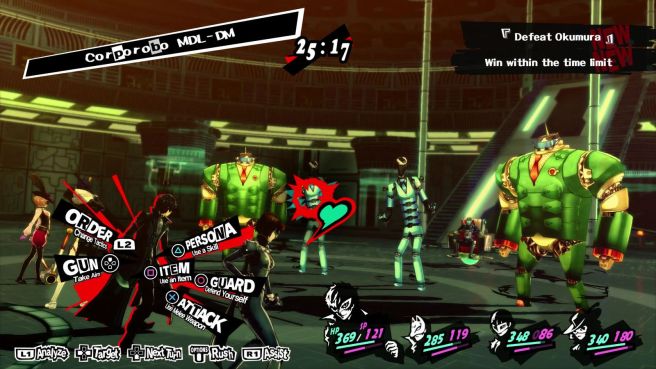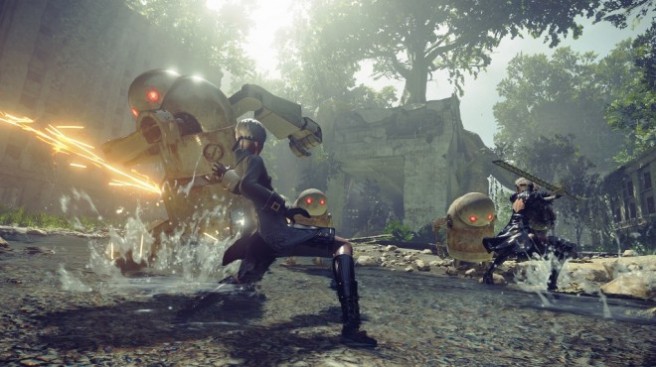Warning: The following is NOT spoiler free.
Warning II: trigger warning for sexual assault mention is symboled tw*

Who’s the thief?
Despite the many issues with Persona 5, the game has a lot of concepts and ideas that are worth discussing. Shin Megami Tensei: Persona 5 redefines the word thief. It features interesting and worth looking at meanings to being one.
Criminal justice systems around the world define robbery as the process of removing ownership of a property from the owner to a person who is not the owner by force. The owner has to have not consented to transferring rights they exercise over property to another person. In most cases, the subject matter in robbery is money but are material possessions the only thing that can be stolen from people? Are they the only things people deem valuable and worthy of protection?
Persona 5 includes different forms of thieves. Those who steal talents, ideas, wages, taxpayer money, money and lives.
The first foe is the high school P.E. teacher who robs students talented in track and field of showcasing their talent by disbanding them and starting a team for a whole different sport, volleyball. Though that’s not the only horrible thing the teacher does as he abuses his students both verbally and physically tw* (even implied sexually but was done in an explosive Oh Look at that hentai sensei Kamoshida!!! than respectful) Kamoshida sensei’s crime is robbing the youth of their talents, denying them the chance to demonstrate their skills and possible sponsorships and scholarships.
Madarame, the second villain, steals ideas. He plagiarised countless works by “tutoring” aspiring artists, offering them training in exchange that he takes credit for whatever they produce. Can you imagine spending years learning to draw only so that someone or some place takes credit for it? Madarame’s example is quite prevalent in the publishing industry.
There’s also Kaneshiro who steals money from people by extortion, Okumura who steals wages and health and quality time from employees, Shido who plans to steal taxpayers money should he win and achieve his own personal agenda rather than that of the people who voted for him and stole Wakaba’s work to use for his own purposes and Nijima who steals lives by not caring whether or not an innocent person is thrown in jail so long as she got a suspect and the case is closed.
Who’s the criminal?
The game highlights a flaw in the criminal justice system in the scene where the character you play as, Akira Kurusu, jumps to defend a woman against a man who attempts to tw* sexually assault her. The man, who calls the police to report Kurusu of assault, threatens to use his connections should they try to arrest him. With one phone call, the cops, rather than arresting him for attempted assault, arrest Kurusu and he’s charged with a crime.
The game ponders the question is it a crime to use violence to stop a crime?
Non Violence
The Phantom Thieves steal hearts; they steal “bad intentions” of people who steal from others. Their special power is to travel into the subconscious of bad guys and change it to good. Bad intentions comes in the form of bad versions of people . The Phantom Thieves have to fight the bad version of the people in their sub conscious in order for them to get rid of evil. You don’t kill people in Persona 5 nor you commit acts of violence towards them. You don’t fight crimes by committing crimes. A paradox often present in media with themes of crime and social justice.
The cast’s personas compliment the main theme perfectly as each one of them is a thief or a rebel of some sort. Arsene, Zoro, Captain Kidd, Carmen, Goemon, Johana, Ali Baba, Mylady and Robin Hood are all considered thieves/rebels in the setting of which they belong except they stole from the rich and influential to either help the poor or achieve other personal gains.
Led or Lead? *pun*
Shin Megami Tensi’s Persona 5 interestingly features many sides of the argument. One of the main characters asks wouldn’t they, the phantom thieves, be contradicting themselves by triggering a change of heart in the people whom they pursue rather than letting it happen on their own? A question that provokes the phantom thieves though they don’t pay much attention to it.
Yaldabaoth, the last boss, appears as a result to the phantom thieves continuous operation change hearts. If a change of heart was only achievable via external means, in the case of Persona 5, the phantom thieves interference, wouldn’t that mean humans cannot be trusted? They can’t be left to their own devices otherwise they’d commit crimes? Had it not been for the Phantom Thieves, the bad guys would’ve carried on with their wrongdoings. Yaldabaoth claims, just as the bad guys needed the phantom thieves to help them change into good people, humans need Yaldabaoth to distinguish the good from the bad. Free will versus Determinism, a recurring theme in JRPGs.
Restorative Justice
Restorative Justice is another concept the game has. Rather than turning the bad guys to police, The Phantom Thieves; Operation change of hearts causes the bad guys to admit to their wrongdoings on their own and in public and vow not to commit the act again. Changing hearts defeats bad intentions completely. The game denies this form of justice to one of the characters who’s responsible for the murder of many.
Class Struggle
One arc in the game tackles class struggle in a very straightforward manner. Employees in the subconscious of bad people, or in this arc Okumura’s, the CEO of a fast food chain, are portrayed as robots who work nonstop and are ordered to praise their company and CEO. An interesting fact you learn during class is the meaning of the word robot which is latin for to work. Employer abuse and mistreatment and terrible working conditions are brought up as issues. Though Okumra isn’t bad for only abusing his employees as he also abuses his own daughter (whose *marriage for convenience* is used as a plot device. Ugh) through this arc you hear characters in the background chattering about worker abuse taking place in many workplaces and not just the chain.
Anarchy… Sort of?
Although not explicitly, Shin Megami Tensei: Persona 5 doesn’t cheer for the current criminal justice system. During many moments of the game, you hear characters in the background talk about a group of people being immune to prosecution due to wealth and influence. The character you play as, Akira Kurusu, has a criminal record for defending a woman against a man who attempted to tw* sexually assault her. But because the man has strong influence he’s able to get away with it. The presence of many corrupt individuals in different establishments as the police station and school is another sign of distrust.
While many video games glorify police system associating respecting the police and not speaking of it critically it with patriotism (not cheering for that here), Persona 5 doesn’t share the quite common sentiment.
Shin Megami Tensei: Persona 5 is a great example to video games as a platform to discuss complex issues.
